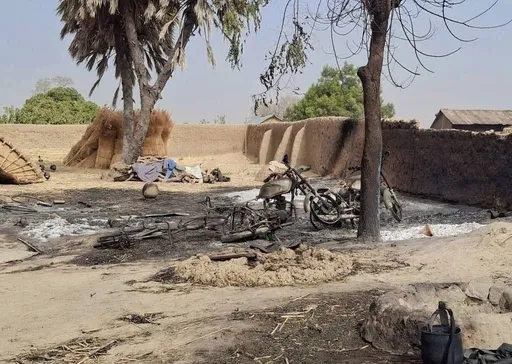By Dayo Yussuf
Africa hits the sweet spot on several parameters that experts believe are fundamental to achieving economic growth. East Africa, in particular, is already clocking the fastest growth rate south of the Sahara.
But with immense potential comes great expectations.
The expected surge in the size and volume of African economies will inevitably shape and drive the demand for industrial assets, with energy being a key component.
So, where will this energy come from, and what will fuel the supply chain?
"Some East African countries have shown interest in developing nuclear energy, especially Kenya," Amos Wemanya, senior advisor on renewable energy at Power Shift Africa, tells TRT Afrika.
"Kenya has been preparing for this for a long time. We have had scholarships for students to join public universities and learn capacity-building, and now we have a nuclear authority in Kenya promoting the development of nuclear energy in the coastal region."
As in most parts of the world, African countries' pursuit of green energy remains focused on geothermal, hydropower, wind or solar projects. But Kenya and some others on the continent have lately shown an increased preference for nuclear energy, a shift that worries some in terms of feasibility.
"If we are to expand electricity supply in the region, I don't think nuclear is the way to go," says Amos, whose organisation is a think tank providing analysis and solution-focused policy ideas from an African perspective.
"Our apprehensions stem from the fact that a nuclear energy project takes a very long time to be commissioned. Kenya has been discussing it for 15 years, and it has yet to happen. It is capital intensive, not forgetting the safety concerns."
Walking the tightrope
Reactors are at the heart of a nuclear power plant, using the energy released during nuclear fission — a complicated process in which a neutron collides with an atom of uranium to split into lighter nuclei.
The reactor's blast of kinetic energy heats water, producing steam that powers turbines to generate electricity.
Nuclear power doesn't release greenhouse gases into the atmosphere, unlike fossil fuels, which are known to contaminate and accelerate climate change. Of course, this cleaner energy choice comes at the cost of difficulties in handling radioactive waste and ensuring safety.
The biggest risk, albeit rare, is nuclear plants overheating and imploding. Most experts are more concerned about the likelihood of human errors leading to a potential disaster.
"Nuclear energy involves working with radioactive materials, and the waste from these materials must be deposited somewhere," explains Amos.
"On the continent, we have a problem managing even conventional waste. I don't know how we will manage waste from these radioactive plants, so we do not have another bigger health challenge."
The nuclear accident at Japan's Fukushima plant in 2011 is often cited as a cautionary tale.
Projects in the pipeline
Earlier this year, Uganda announced a 2,000 MW nuclear power project located 150 kilometres north of Kampala. The country aims to make the first 1,000 MW plant operational by 2031.
Rwanda, too, recently signed an agreement to build a nuclear power plant. Kenya and Tanzania are the latest members of the East African community to roll out nuclear energy projects.
On the positive side, a large nuclear power plant has twice the electricity generation capacity of a project of a similar size based on conventional technologies.
Another advantage, at least in theory, is that such a plant can produce electricity continuously without being affected by weather, season, or time of day.
Amos believes that nuclear energy is viable for some of the larger economies but could stress countries that need more resources to spare.
"We are already constrained to be able to invest in energy systems that require huge investments. Suppose we invest these limited resources in a highly centralised energy system powered by nuclear energy. In that case, I don't think we would be doing justice to communities that might not have access to this system," he tells TRT Afrika.
The cost of building a new nuclear power plant typically runs to about $5 billion per 1,000 MW. To put it in perspective, creating a 2,000 MW plant in Uganda will absorb the nation's annual tax income. This means any such project would depend on large foreign loans with high interest.
Germany, one of the more developed and economically stable countries, is shutting down its nuclear energy plants in phases. However, those on the other side of the argument counter that developed countries discount these projects only after reaping their full benefits.
Until there are better options, Africa, like many other developing countries, could take the opposite route.
➤ Click here to follow our WhatsApp channel for more stories.























